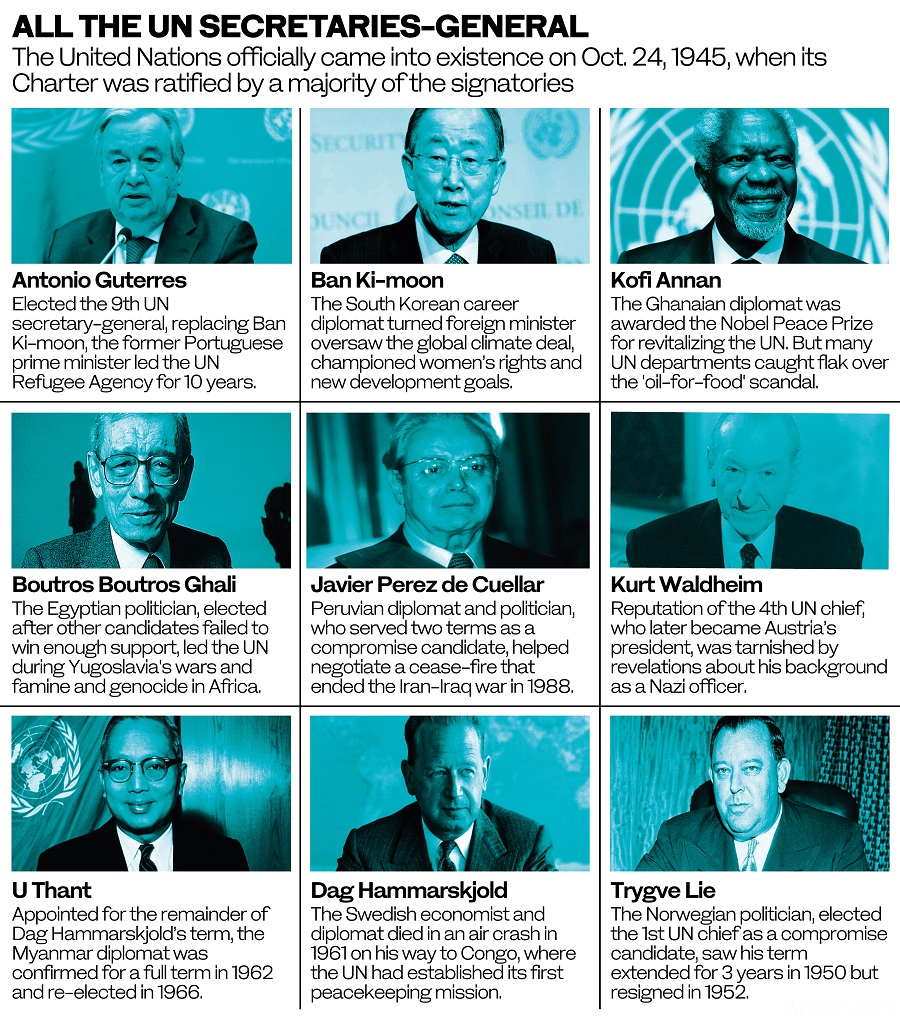Context:
The United Nations has formally begun the process to elect the next Secretary-General (SG) to replace Antonio Guterres, whose term ends on 31 December 2026. Member states have been invited to submit nominations, with a historic emphasis on selecting the first woman Secretary-General.
Legal Basis and Selection Procedure:
The SG is the chief administrative officer of the UN, as defined in Article 97 of the UN Charter, and is often described as “equal parts diplomat, advocate, civil servant, and CEO.” The selection process involves:
1. Nominations – Member states propose candidates after a joint letter from the UNGA and UNSC Presidents.
2. Security Council Screening – The 15-member UN Security Council conducts secret straw polls, where members indicate “encourage,” “discourage,” or “no opinion.” The five permanent members (P5) hold veto power.
3. Security Council Recommendation – A candidate requires 9 votes without a P5 veto to be recommended via resolution.
4. General Assembly Appointment – The 193-member UNGA typically formalizes the Security Council’s recommendation.
The SG serves a five-year term, renewable once; Guterres is currently serving his second term. Informal practices like regional rotation also guide nominations.
Administrative and Executive Functions:
-
-
- The Secretary-General heads the UN Secretariat, supervising over 30,000 staff and managing a core budget of USD 3.7 billion and a peacekeeping budget of USD 5.6 billion. Responsibilities include implementing policies, overseeing UN offices worldwide, and ensuring efficient functioning of peacekeeping operations and administrative structures.
- Diplomatic and Agenda-Setting Roles:
- The SG acts as a global mediator, using “good offices” to prevent or resolve conflicts. The office brings threats to international peace before the Security Council (Article 99) and launches initiatives on:
- Humanitarian crises
- Climate action
- Development goals
- Human rights and gender equality
- Humanitarian crises
- This agenda-setting role enhances the UN’s capacity to respond to global challenges.
- The Secretary-General heads the UN Secretariat, supervising over 30,000 staff and managing a core budget of USD 3.7 billion and a peacekeeping budget of USD 5.6 billion. Responsibilities include implementing policies, overseeing UN offices worldwide, and ensuring efficient functioning of peacekeeping operations and administrative structures.
-
Symbolic and Advocacy Functions:
Beyond administrative duties, the SG serves as the moral voice of the international community, promoting:
-
-
- Multilateralism and international cooperation
- Peace, security, and conflict prevention
- Sustainable development and human rights advocacy
- Multilateralism and international cooperation
-
Through speeches, global initiatives, and public diplomacy, the SG shapes international discourse on urgent global issues.







